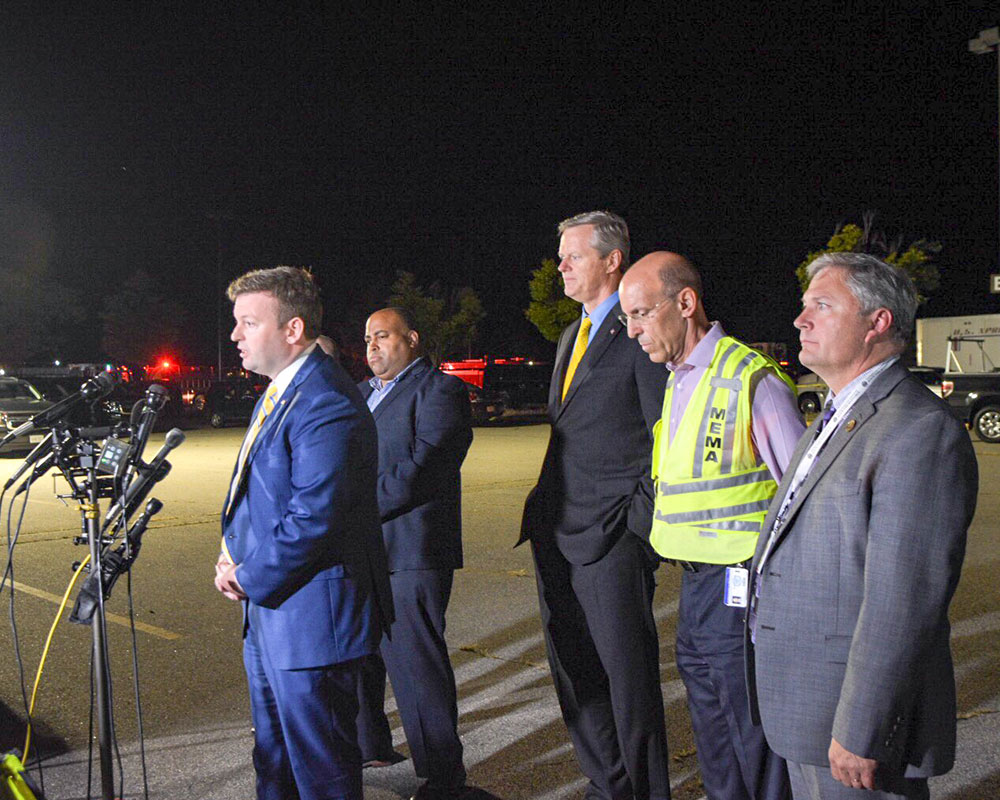Federal pipeline overseers introduced new safety regulations for the more than 2.3 million miles of distribution lines that carry natural gas to and around communities last week, rolling out new rules that the U.S. Department of Transportation said put into practice lessons learned from the 2018 Merrimack Valley gas explosions and fires.
Almost five years ago, on Sept. 13, 2018, high-pressure natural gas was released into a low-pressure gas distribution system, leading to a series of fires and explosions that leveled buildings in Lawrence, Andover and North Andover. The gas disaster killed one teenager, Leonel Rondon, injured 22 other people, damaged more than 130 homes and businesses, and forced the evacuation of about 50,000 residents.
Columbia Gas, the natural gas provider in the area, pleaded guilty to a federal felony charge of violating a minimum safety standard in the federal Natural Gas Pipeline Safety Act and saw its assets in Massachusetts sold off to Eversource Energy.
Last week, the U.S. Department of Transportation’s Pipeline and Hazardous Materials Safety Administration formally began the process of implementing new rules that are meant to “improve safety and mitigate risk through the improvement of emergency response plans, integrity management plans, operation manuals and more.”
Officials said the new regulations implement Congressionally-mandated revisions from the Leonel Rondon Pipeline Safety Act—named for the 18-year-old Lawrence resident who died in the 2018 explosions—that was enacted as part of a 2020 law. They also address National Transportation Safety Board recommendations.
“Every day, millions of miles of gas distribution pipelines deliver energy to tens of millions of Americans, helping heat homes and power businesses,” Transportation Secretary Pete Buttigieg said. “But as the tragic death of Leonel Rondon in 2018 reminded us, more must be done to ensure the safety of those pipelines—which is why we are announcing a new proposed rule to strengthen pipeline safety regulations and protect the public.”
The new regulations include measures meant to improve construction procedures to minimize the risk of incidents caused by system over-pressurization, like the Merrimack Valley explosions; updates to distribution integrity management programs to cover and prepare for overpressurization incidents; a requirement that new regulator stations be designed with secondary pressure relief valves and remote gas monitoring so systems can be better prepared for overpressurization and can more quickly limit damage if a distribution system is overpressurized; and requirements that gas system operators strengthen response plans for gas pipeline emergencies so that local emergency responders are contacted quickly and customers and the public are informed of what to do in the event of an emergency.
“This proposal incorporates lessons from the 2018 Merrimack Valley tragedy to help ensure something like that never happens again,” PHMSA Deputy Administrator Tristan Brown, who lived in nearby New Hampshire as a child, said. “These changes will protect communities and the environment, as well as lower energy costs for consumers.”
Colin A. Young, State House News Service.
